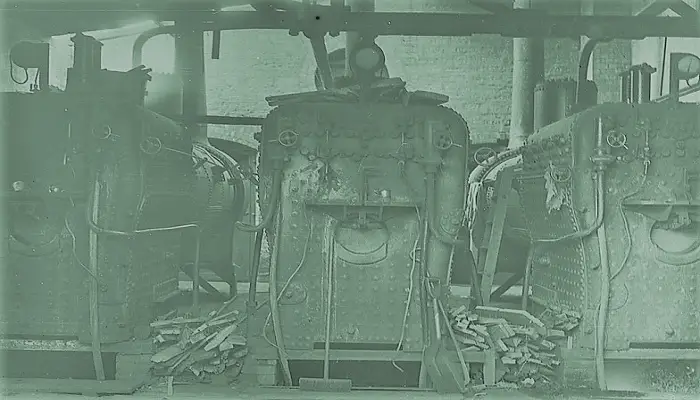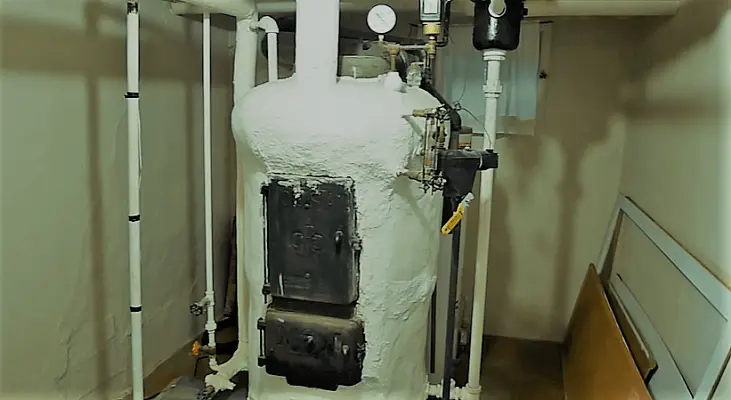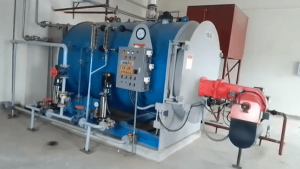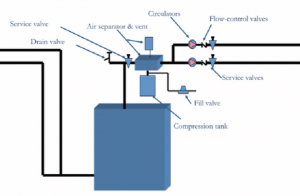Disclosure: As an Amazon Associate, I earn from qualifying purchases. Learn more
Last Updated on August 16, 2023 by Rhyes Frank
As the age of the boiler increases, its efficiency decreases. But a common question is “are old boilers dangerous? In fact, the answer to this question is sometimes complicated to say “yes” or “no”. Although it is said that after 15 years, all boilers are considered old. This is because after this period most of the parts of a boiler start to lose their efficiency. In some cases, they can even be fatal. Carbon monoxide poisoning is a serious threat to your health. It can also cause fires and even explosions. So, they are required to check them regularly at this time.
However, with regular checks, the boiler is able to provide long-term service by resolving the alarming impending problem.
If your boiler is old, it is important to inspect it regularly to ensure that it is still safe to use. There are several signs that indicate that your boiler is not dangerous, even if it is old.

First, if your boiler is equipped with a pressure relief valve, this valve should be tested regularly to ensure that it is working properly. If the valve is not working properly, it could release pressure and cause an explosion.
Second, you should check the boiler’s water level regularly. If the water level is too low, it could cause the boiler to overheat and potentially catch fire.
Third, you should inspect the boiler’s combustion chamber regularly. If there is any debris or buildup in the combustion chamber, it could cause the boiler to explode.
Fourth, you should check the boiler’s flue pipes and chimney regularly. If there is any blockage in the flue pipes or chimney, it could cause deadly carbon monoxide to build up inside the boiler, which could lead to asphyxiation.
If you regularly inspect your boiler and make sure that it is free of any potential dangers, then it is safe to use, even if it is old.
Related: Bleeding Boiler System: Why and When Must?
Are Old Boilers Dangerous?
Again, repeating the previous discussion, yes, it is dangerous. The old boilers are dangerous because of the asbestos that is used in their construction. Asbestos is a known carcinogen, and exposure to it can lead to mesothelioma, deadly cancer. Some more harmful probable causes are known.
1. They Can Explode
Old boilers can be dangerous because they can explode. This is because the pressure inside the boiler can build up over time, and if it gets too high, the boiler can explode.
2. They Can Cause Fires
Another reason why old boilers can be dangerous is that they can cause fires. This is because the boiler can get so hot that it ignites anything nearby, including wood and paper.
3. They Can Release Carbon Monoxide
Old boilers can also be dangerous because they can release toxic gases. This is because when the boiler is heated, it can release dangerous gases like carbon monoxide. It is an odorless and colorless gas so you can’t easily find it out.
4. They Can be a Shock Hazard
Another danger of old boilers is that they can be a shock hazard. This is because the boiler can build up static electricity, and if someone touches it, it can be electrocuted.
5. Gas Leaks
Using a propane or natural gas boiler system over the years can cause gas leaks. This is one of the main causes of fire. Gas leaks not only increase the risk of fire, they also damage the floor and walls of your home. It also causes serious health risks.
6. Toxic Mold
An old boiler can easily accelerate the growth of mold, which can lead to a variety of physical symptoms. These include a runny or stuffy nose, dry cough, asthma, itchy eyes, and other allergy symptoms. The main reason for this is the increase of mold in the water heater.
7. They Can be a Scalding Hazard
Finally, old boilers can be a scalding hazard. This is because the water in the boiler can get extremely hot, and if someone comes into contact with it, they can be seriously injured.
Why Are Old Boilers Dangerous?
Boilers, like any other part, can develop defects over time. Obstacles to life This heating tool of yours often becomes dangerous due to errors and poor performance.
Just as a poorly fitted or faulty boiler can be a serious threat to your life, an old boiler can be destructive and cause carbon monoxide poisoning, fires, and even explosions. Among other things, they tend to lose their effectiveness over time.
1. No safety device: Older boilers often have no safety device. This means that if something goes wrong, there is no way to prevent an explosion.

2. Create pressure: Over time, the pressure in the boiler may increase. This can cause the boiler to explode.
3. Corrosion: Older boilers are more likely to be made of cast iron. This material is susceptible to corrosion, which can weaken the boiler and cause it to explode.
4. Poor maintenance: If a boiler is not maintained properly, it is more likely to fail. This can lead to explosions. This symptom is more common in older boilers.
5. No inspection: Older boilers often go without inspection. This means that problems cannot be detected until it is too late.
6. Poorly fitting or missing parts: If your boiler is missing a pressure relief valve or other important components, it is much more likely to explode.
7. Scale: Scale build-up inside the old boiler can insulate the heat, creating dangerous pressure and the possibility of explosion.
8. Frequent repairs required: If your boiler is old, it needs to be repaired frequently which is a tedious task for everyone. One part after another will continue to malfunction. Your costs will increase but you will not get efficient heat and hot water from your boiler heating system.
Why Should Replace Your Old Boiler?
If you have a boiler 100, 50, 25, or even 20 years old, it should be replaced even if it is still working. Boilers are not designed to last forever and will eventually break down. Replacing an old boiler before it breaks down can save you a lot of money and hassle in the long run.
Here are some reasons to replace an old boiler:
1. Safety: Older boilers can be dangerous. They may not have the latest safety features, which can put you and your family at risk.
2. Efficiency: Newer boilers are much more efficient than older models. This means they use less energy, which will save you money on your energy bills.
3. Reliability: An old boiler is more likely to break down than a new one. This can be very inconvenient and expensive to repair.
4. Environmental: Newer boilers are much more environmentally friendly than older models. They emit less carbon dioxide, which is better for the planet.
5. Comfort: Newer boilers tend to be quieter and more comfortable than older models.
If you have an old boiler, it is definitely worth considering replacing it with a newer model. Doing so can save you money, increase your safety, and improve your comfort.
When to Replace Your Old Boilers?
It’s generally recommended that you replace your old boilers every 20- 25 years. However, this varies depending on the type of boiler, how well it’s maintained, and other factors. If your boiler is starting to show signs of age or isn’t running as efficiently as it used to, it may be time to start thinking about replacing it.
Your boiler may need replacing if it is starting to make strange noises, or if it is frequently breaking down. If your boiler is costing you a lot of money in repairs, it may also be time to replace it.
How Do You Know if Your Boiler Needs to Be Replaced or Repaired?
If your boiler is more than 15 years old, it may be time to start thinking about replacing it. There are some signs to replace or repair your boiler. If you get these alarming rates then you should replace the boiler, and if they are under control then you can repair it.
- Your boiler isn’t heating your home as well as it used to.
- You’ve noticed an increase in your energy bills.
- Your boiler is making strange noises.
- There is water leaking from your boiler.
- Your boiler is constantly turning on and off.
FAQs
Q. Is It Safe to Use an Old Boiler?
A. While an old boiler may still be functioning, it may not be operating as efficiently as it once did. Additionally, it may not be able to provide the same level of heating as a newer model. If you have an old boiler, it is best to consult with a heating contractor to see if it needs to be replaced.
Q. How Long Do Boilers Last?
A. The lifespan of a boiler depends on several factors, such as the quality of the unit, the level of maintenance, and the climate where it is installed. Most boilers have a lifespan of 15-20 years.
Q. Are Old Boilers More Likely to Break Down?
A. Yes, older boilers are more likely to experience problems and may require more frequent repairs. If you have an older boiler, it is important to have it inspected by a heating contractor to ensure that it is still in good working condition.
Q. How Much Do Boiler Repairs Cost?
A. The cost of boiler repairs will vary depending on the type of repair that is needed. However, it is generally less expensive to repair an older boiler than it is to replace it with a new one.
Q. Should I Replace my Old Boiler?
A. While there are benefits to replacing an old boiler with a new one, such as increased efficiency and a longer lifespan, it is not always necessary. If your old boiler is still in good working condition, you may not need to replace it. However, if it is starting to break down or is not operating as efficiently as it once did, it may be time to consider replacing it.

